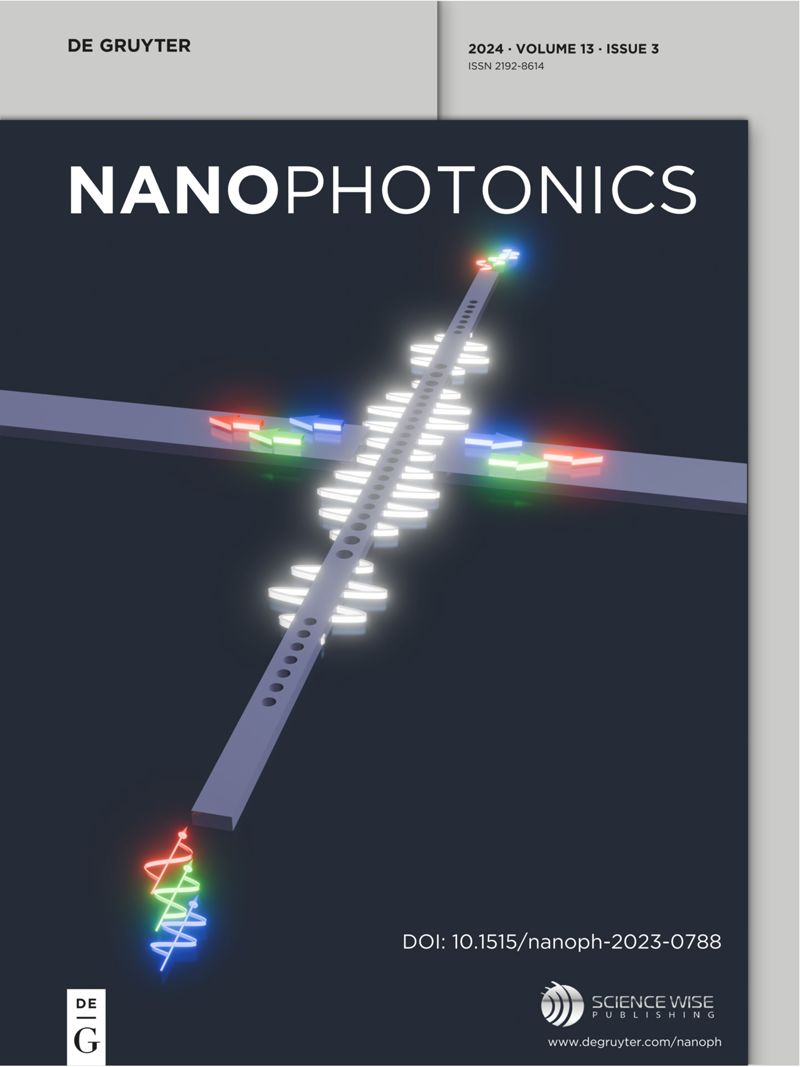Effect of magnesium doping on NiO hole injection layer in quantum dot light-emitting diodes
IF 6.5
2区 物理与天体物理
Q1 MATERIALS SCIENCE, MULTIDISCIPLINARY
引用次数: 0
Abstract
This study reports on the fabrication of quantum dot light-emitting diodes (QLEDs) with an ITO/Ni量子点发光二极管中镁掺杂对氧化镍空穴注入层的影响
本研究报告了采用 ITO/Ni1-x Mg x O/SAM/TFB/QDs/ZnMgO/Al 结构制造量子点发光二极管(QLED)的情况,并探讨了在 NiO 中掺入不同浓度的镁对器件性能的影响。通过在无机空穴注入层 NiO(Ni1-x Mg x O)中掺杂镁,我们通过带调谐改善了与空穴注入层的带排列,从而增强了电荷平衡。最佳的镁掺杂比,尤其是 Ni0.9Mg0.1O 成分,已显示出卓越的器件功能,突出了微调掺杂水平的必要性。通过使用紫外臭氧(UVO)对 Ni0.9Mg0.1O 进行表面处理,以及对 ZnMgO 电子传输层进行热退火(TA)处理,进一步提高了掺杂水平。因此,通过优化 QLED 器件中的掺镁氧化镍,我们实现了 8.38 % 的最大外部量子效率、66677 cd/m2 的亮度和 35.31 cd/A 的电流效率,表明性能得到了改善。将掺镁氧化镍集成到 QLED 结构中,使器件具有优异的电荷平衡和整体性能,这是未来 QLED 显示技术的一个很有前途的方向。
本文章由计算机程序翻译,如有差异,请以英文原文为准。
求助全文
约1分钟内获得全文
求助全文
来源期刊

Nanophotonics
NANOSCIENCE & NANOTECHNOLOGY-MATERIALS SCIENCE, MULTIDISCIPLINARY
CiteScore
13.50
自引率
6.70%
发文量
358
审稿时长
7 weeks
期刊介绍:
Nanophotonics, published in collaboration with Sciencewise, is a prestigious journal that showcases recent international research results, notable advancements in the field, and innovative applications. It is regarded as one of the leading publications in the realm of nanophotonics and encompasses a range of article types including research articles, selectively invited reviews, letters, and perspectives.
The journal specifically delves into the study of photon interaction with nano-structures, such as carbon nano-tubes, nano metal particles, nano crystals, semiconductor nano dots, photonic crystals, tissue, and DNA. It offers comprehensive coverage of the most up-to-date discoveries, making it an essential resource for physicists, engineers, and material scientists.
 求助内容:
求助内容: 应助结果提醒方式:
应助结果提醒方式:


